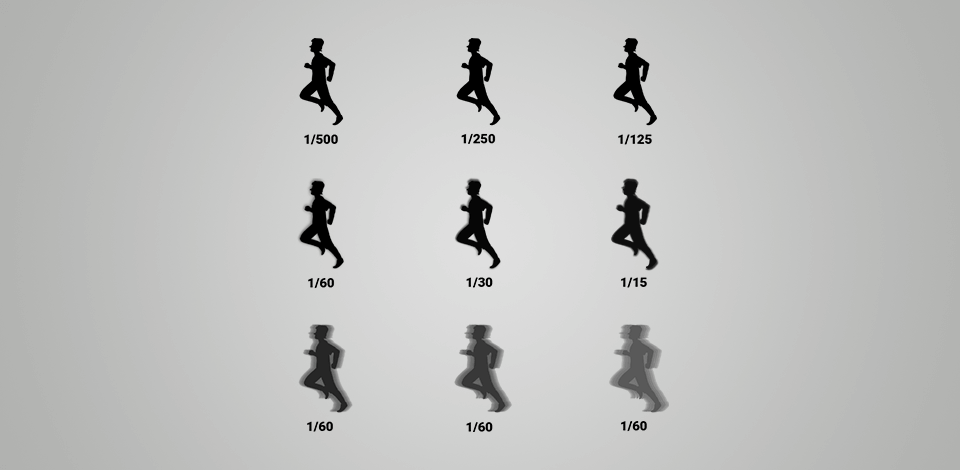
As an important component of the exposure triangle in photography, shutter speed refers to the speed at which the shutter of the camera closes.
Fast speed is used to capture short, clear scenes, in other words, to freeze any action.
As opposed to a fast shutter speed, a slow shutter speed produces blurry, highly dynamic shots, allowing even more light to enter the camera.
By choosing the wrong shutter speed for the shot you want, you can ruin it with blur and lack of clarity.
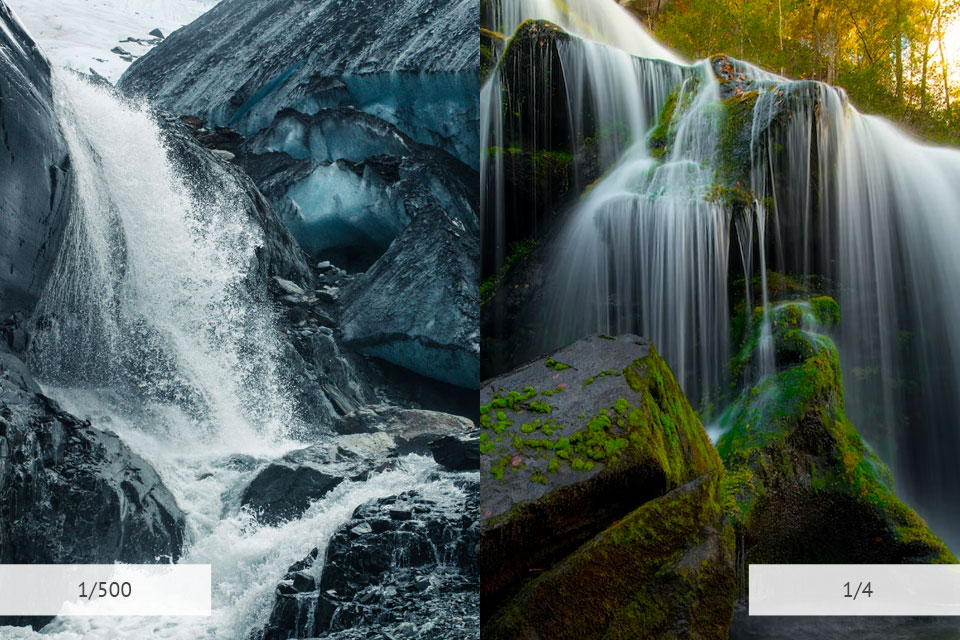
Shutter speed measurements are performed in seconds and fractions of a second. It applies the following sequence: “…5″, 2″, 1″,½, ¼, 1/8, 1/15, 1/30, 1/60, 1/125, 1/250, 1/500…”. Each next value means a higher speed. For instance, ¼ means a quarter of a second while 1/500 is one five-hundredth of a second.
It is also important for you to be familiar with the concept of exposure stop, which refers to the distance between one exposure value to another.
By increasing or decreasing it by one step, you thus double or halve its value. This theoretical knowledge of what does the shutter speed do is important to master before learning what types of shutter speeds are and which ones are preferred for different genres of photography.
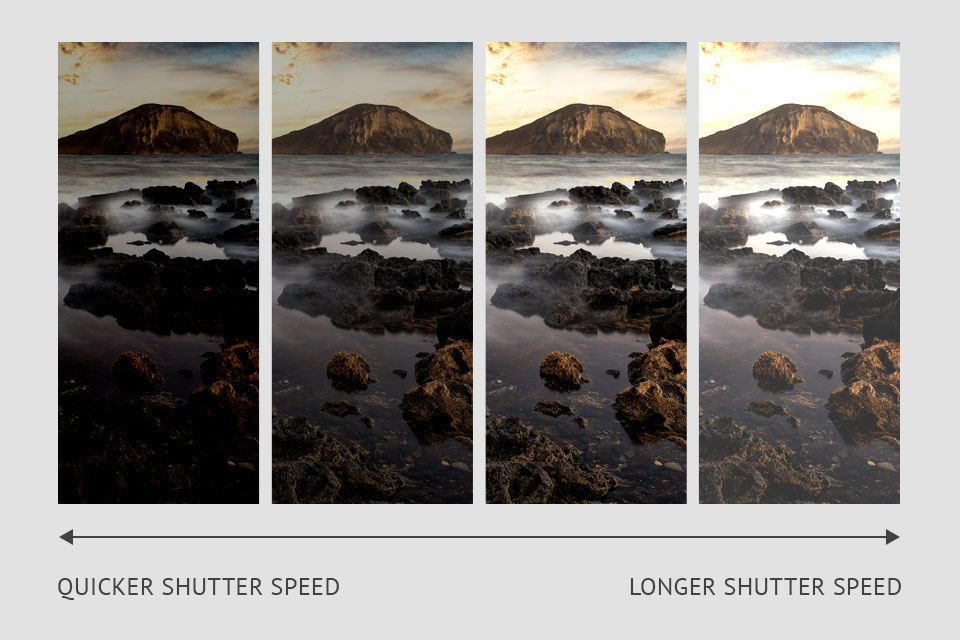
Typically, the maximum shutter speed for most cameras on the market today, whether DSLR or mirrorless camera, is 1/4000th of a second. However, you can also find options that support speeds of 1/8000 second and higher.
Speaking of the longest shutter speed supported by most devices, it’s 30 seconds. If you want an even longer value, I suggest using an external camera remote.
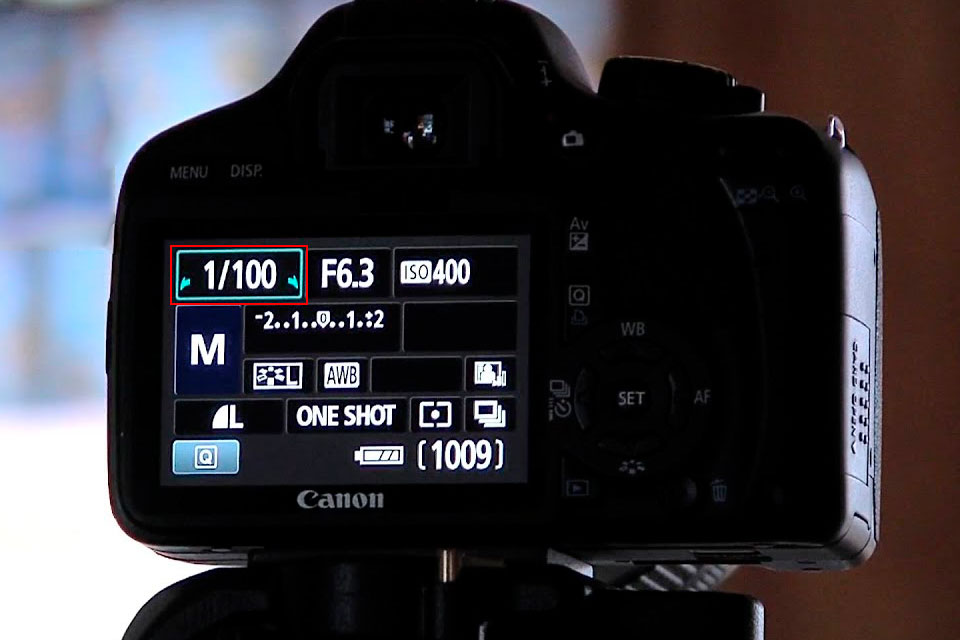
To properly change the shutter speed on camera, you need to consider which camera mode you are going to use.
Shutter Priority Mode, which can also be found as “S” or “TV” on the camera’s mode dial. By turning it on, you select the desired shutter speed. The camera, in turn, adjusts to your choice by setting the aperture, thereby achieving the appropriate exposure. If you want to shoot in this mode, turn the dial to “S” or “TV” and use the camera’s command dial or control wheel to set your desired shutter speed.
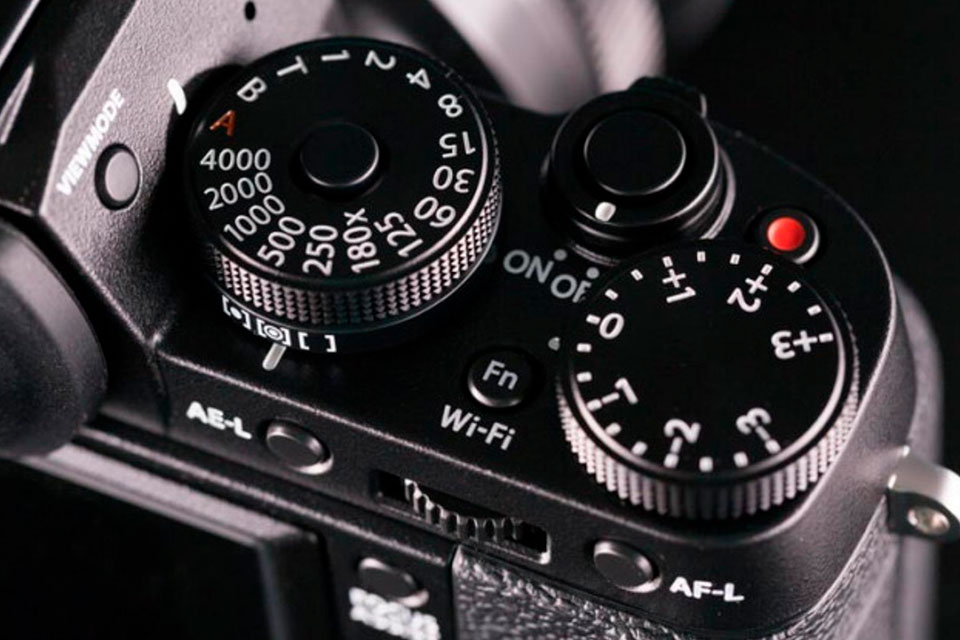
Manual Mode, also known as “M” when searched on the mode dial, gives you complete freedom to set your shutter speed and aperture. If you want to change the shutter speed, turn the camera control dial or control wheel. Use your camera’s top LCD, rear screen, and viewfinder to see your current shutter speed.
You should also understand that the shutter speed is set differently on different cameras. On some, you can choose which wheel to change this parameter.
Always keep in mind proper exposure, no matter what mode you choose. To do this, you need to follow the camera’s exposure meter or histogram. If your image comes out too dark, make the aperture and depth of field higher, or increase the ISO. For shots that come out too bright, on the contrary, it is worth lowering the shutter speed, aperture, or ISO.
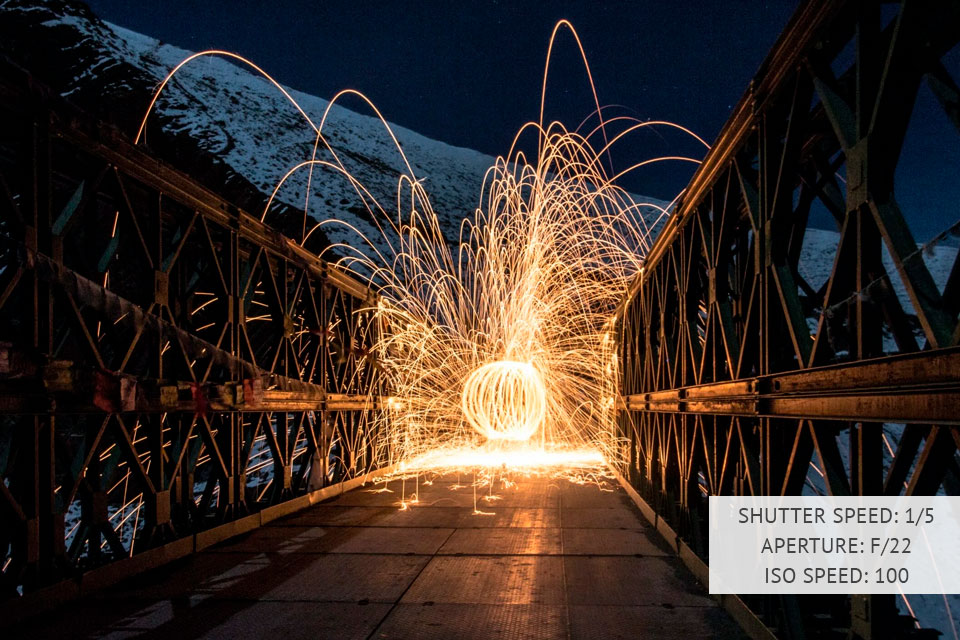
By choosing a slow shutter speed, the shutter will close later, allowing for a lot of creative stuff. The longer the shutter is open, the more light will enter the camera, and the blurrier will be those objects that move.
If you like shooting at night or in low-light conditions, slow shutter speeds can make a big difference but don’t forget to bring a tripod with you. Long exposures create stunning, highly-dynamic long exposure photography depicting rivers and waterfalls that appear to be moving while the rest of the background remains still and crisp. Always take a tripod with you when shooting to avoid unnecessary blur from the movement of the hands holding the camera.
This way you can also get rid of the camera motion capture in the image. A slow shutter speed is good for implementing various creative ideas, such as panorama or shooting both sharp and blurry movements with flash.
For example, if you prefer 50mm lenses, then the shutter speed should be set to 1/100th of a second or less. When shooting with a 75mm lens, set the shutter speed to at least 1/150 s.

Short shutter speeds include 1/500th of a second and faster. With this setting, your shutter will be open for less time and therefore receive less ambient light. It is suitable for lovers of high speed photography as it’s capable of motion blur and capturing objects that move at high speed.
If you’re into action photography, including sports or wildlife photography, then a fast shutter speed is something you can’t do without. This will help make your subject the center of your shot – just what you need for a highly dynamic photo.
Also, a fast shutter speed can reduce or completely get rid of blurs in the background of your moving subject. To determine the most optimal shutter speed, consider the speed at which the subject is moving. The fastest speed you can find in specialized cameras is 1/8000s. First-class cameras, as a rule, cannot boast such a high value.
You can also find a camera that will take pictures until you take your finger off the shutter button. This way you get more variations of the same shot and can choose the best and sharpest one, which is very important when shooting sports or wildlife.
Your photo may be too dark. Also, the camera may have communication issues with components that depend on the shutter.
Shutter speed affects two factors – the lighting in your shot and scene effects such as motion freeze or motion blur.
Another factor in what does shutter speed control is ensuring maximum sharpness. If you choose the wrong shutter speed when shooting a dynamic scene, you will end up with a blurry photo. Fast shutter speeds are essential for sports, wildlife, and sharp bird photography.
A fast shutter speed is a shutter speed that can capture a highly dynamic scene clearly and sharply. More specifically, these are values of 1/250 of second or even smaller fractions of a second.
The longer the shutter open period, the more light your camera will receive. For this effect, values of 1/60 or large fractions of a second are suitable.